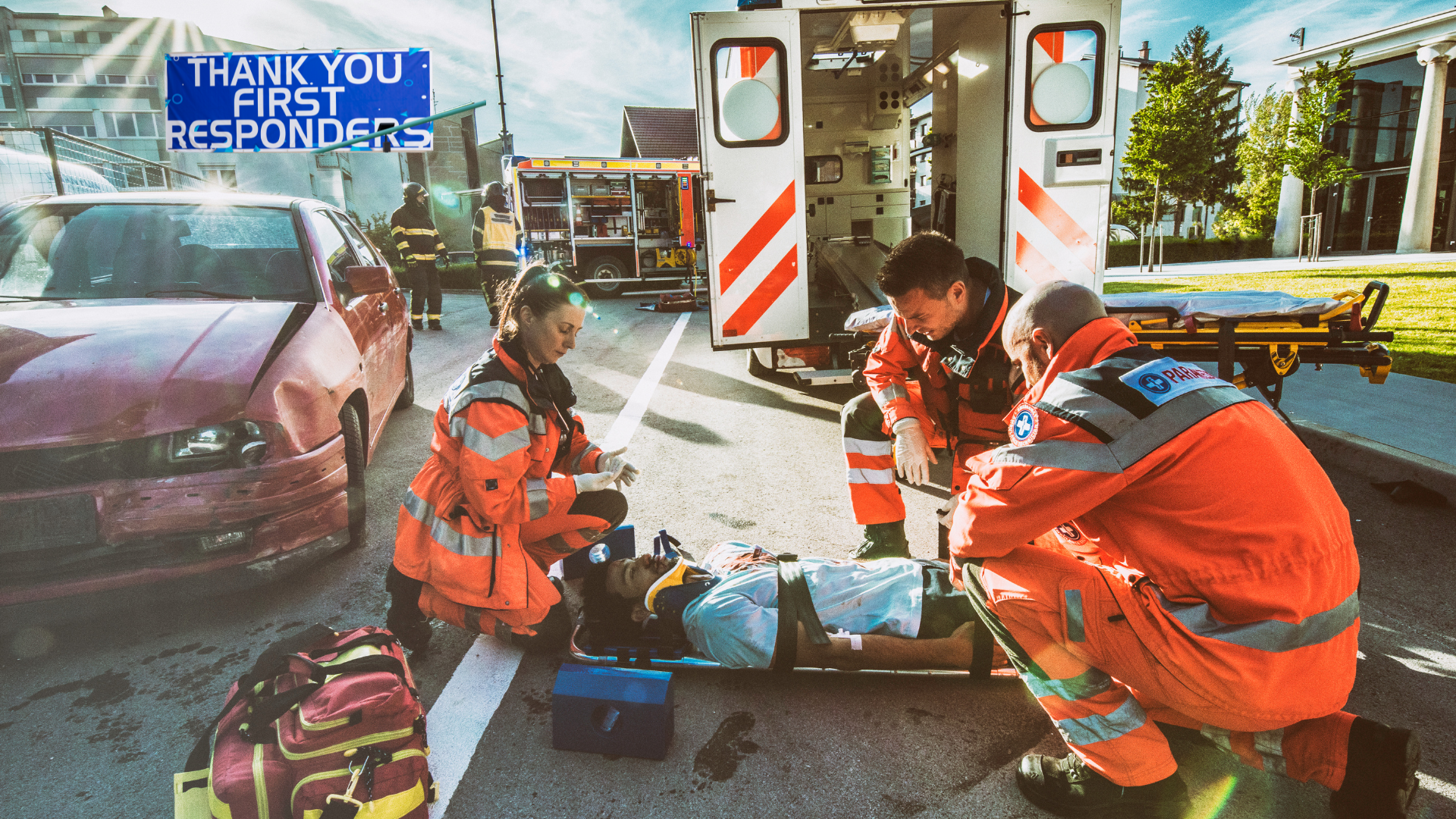Have you ever wondered how first responders manage their healthcare while constantly facing unique emergencies?
For a first responder, healthcare isn’t just about routine check-ups—it’s about finding specialists who can address work-related injuries, mental health concerns, and overall wellness.
This blog provides practical steps for finding trusted healthcare providers who offer tailored care—whether you need a new primary care doctor, mental health support for family or colleagues, or specialists familiar with the unique challenges first responders face.
Understanding Healthcare Needs as a First Responder
Physical Demands and Common Injuries
First responders often face physically demanding situations that increase the risk of injuries. Common conditions include:
- Musculoskeletal issues from heavy lifting, falls, or physical confrontations.
- Burns and respiratory conditions caused by fires, smoke, or chemical exposure.
- Injury flare-ups due to repetitive strain or untreated trauma.
Finding a primary care physician with experience treating such injuries is vital for proper recovery.
Mental Health Considerations
First responders are at an increased risk of developing mental health disorders. Yes, 38% of first responders report having symptoms that are most likely related to post-traumatic stress disorder (PTSD)-chronic stress, anxiety, and depression.
They must seek healthcare providers well-trained in trauma-informed care as treatment. Services can be provided by a primary healthcare provider.
Specialized Healthcare Requirements
First responders often face unpredictable schedules, making it essential to find “primary care physicians near me” who offer flexible appointment options and quick access to specialists. Providers familiar with workers’ compensation documentation can streamline care for duty-related injuries, while those experienced in preventative healthcare for seniors are particularly valuable for aging first responders managing long-term wellness.
Key Features in First Responder Healthcare Providers
| Feature | Essential for First Responders | Recommended for Seniors |
| Flexible Scheduling | ✅ | ✅ |
| Trauma-Informed Care | ✅ | ✅ |
| Experience with Job-Related Injuries | ✅ | ✅ |
| Telehealth Services | ✅ | ✅ |
| Chronic Condition Management | ✅ | ✅ |
Researching Healthcare Providers
Finding healthcare providers who meet these specialized needs can be challenging. Fortunately, using dedicated resources can simplify the process.
Online Directories and Databases
Finding a reliable primary care physician can begin with trusted online resources like:
- VA Healthcare Locator – Connects first responders to providers with experience in occupational injuries and trauma care.
- State Medical Boards – A valuable tool for verifying credentials and reviewing malpractice records.
- Specialty Provider Directories – Platforms that highlight doctors specializing in first responder care.
These resources simplify the process of identifying primary care service providers who cater to first responders’ unique needs.
Professional Recommendations
Beyond online tools, first responders often rely on trusted networks for recommendations:
- Fire Department/Medical Directors – Leaders who often maintain connections with experienced healthcare providers.
- Peer Recommendations – Fellow first responders can provide insight into doctors who understand job-specific health concerns.
- Professional Associations – Groups like the National First Responders Network often maintain healthcare directories.
Asking peers for a reliable family physician near me can lead you to someone with experience handling duty-related injuries.
Evaluating Healthcare Providers
While recommendations are helpful, it’s important to evaluate healthcare providers for their qualifications, experience, and reviews.
Credentials and Specializations
When assessing healthcare providers, consider these key factors:
- Board Certifications in emergency medicine, trauma care, or occupational health.
- Experience with First Responders – Ask potential providers about their background in treating emergency workers.
- Specialized Training in mental health support, injury recovery, and chronic pain management.
Choosing providers with these credentials ensures your healthcare team understands your unique challenges.
Patient Reviews and Feedback
Credentials are crucial, but real-world experiences can provide additional clarity. Reading reviews on online platforms can provide insights into a provider’s experience with first responders. Look for reviews that highlight:
- Efficient communication.
- Knowledge of primary care services.
- Experience treating first responder injuries.
Ensuring Accessibility and Convenience
A highly skilled provider may still be difficult to access if they’re too far away or unavailable when you need care most.
Location and Proximity
For first responders, accessibility matters. Finding clinics near your station, home, or work zone minimizes travel time during emergencies. Searching for primary care physicians near me can help you identify accessible providers.
Telehealth Services
Telemedicine is an excellent option for first responders with demanding schedules. Providers offering virtual visits can:
- Deliver mental health support through online counseling.
- Manage ongoing conditions like asthma, chronic pain, or diabetes.
- Offer flexible care options for responders balancing shift work.
For first responders managing chronic condition management, telehealth simplifies follow-up care without the need for frequent in-office visits.
Making the Most of Your Healthcare Visit
Once you’ve chosen a provider, preparation is key to ensuring productive appointments.
What to Bring to Your Appointment
To ensure a productive visit, prepare:
- Medical History – Include details of past injuries, treatments, and ongoing conditions.
- Insurance Information – Clarify coverage details for Medicare primary care or private insurance.
- Duty-Related Injury Documentation – Accurate records ensure providers understand your injury’s background.
Questions to Ask Your Healthcare Provider
Asking the right questions helps establish clear expectations. Consider asking:
- “Do you have experience treating first responders?”
- “Can you assist with documenting duty-related injuries?”
- “What preventative care options are available to improve my long-term wellness?”
Choosing providers familiar with preventative healthcare for seniors or health screenings for seniors is especially beneficial for older first responders.
Building a Long-Term Healthcare Relationship
Forming a relationship with a primary care physician before urgent care is needed ensures faster response times when injuries occur.
Consider building a network that includes:
- Family physicians near me for routine care.
- Specialists in geriatric care near me to manage age-related concerns.
- Providers experienced in senior wellness programs to support long-term health.
Routine visits allow for early detection of health concerns and access to services like affordable senior healthcare and senior health clinics.
FAQs on First Responders
How do first responders help the community?
First responders are trained professionals like firefighters, police officers, and paramedics who rush to assist during emergencies. They save lives, provide medical care, and keep people safe during fires, accidents, or natural disasters.
What are first responders in rural areas?
Rural first responders are those who provide care during emergencies in very remote areas far from cities – e.g., volunteer firefighters, and community-trained paramedics.
What challenges do first responders face in a post-earthquake rescue effort?
After an earthquake, most first responders deal with blocked roadways, collapsed buildings, and communication failure. Their job becomes more tedious as they will have to go through all these messes to get to injured persons who may be quite far out of reach.
Are doctors included in first responders?
Doctors are not typically considered first responders, although a few may volunteer in emergency response teams during the occurrence of a disaster or major emergencies that call for urgent attention or medical care.
Conclusion
A first responder must ensure the credibility of health care providers through which he will enhance wellness with its multiple dimensions: physical, psychological, and emotional. Well-rounded research and professional recommendations pave the way for first responders to gain access to successful primary care physicians and specialists tailored to their needs.
Whether you’re seeking Medicare primary care, managing ongoing injuries, or exploring preventative healthcare for seniors, building a reliable healthcare network ensures long-term support for both active and retired first responders.











